For almost every family in the United States and across the world, the tomato has to be one of the biggest staples found in our kitchen.
Tomatoes are amazing to eat in a salad, on a sandwich, or to make a homemade sauce. But is all of this yumminess good for our canine friends?
What about tomato soup? Can dogs eat tomato soup?
No, dogs should not be eating soups of any kind. Most soups, including tomato, will likely have additives, such as sugar and salt that is not good for your dog.
Keep reading if you are wondering more about whether your dog can eat tomato soup, as well as the surprising myth about it.
Can Dogs Eat Tomato Soup?
As all dog owners know, dogs really don’t discriminate when it comes to food. They are more than happy to eat almost anything you offer them. Or happen to leave sitting out.
When it comes to soups and sauces, you should never feed these to your dog. Most canned tomato soups are not only going to have preservatives, but they will probably contain sugar and salt.
Tomato soups can also have garlic and onions in them, which is particularly bad for your dog.
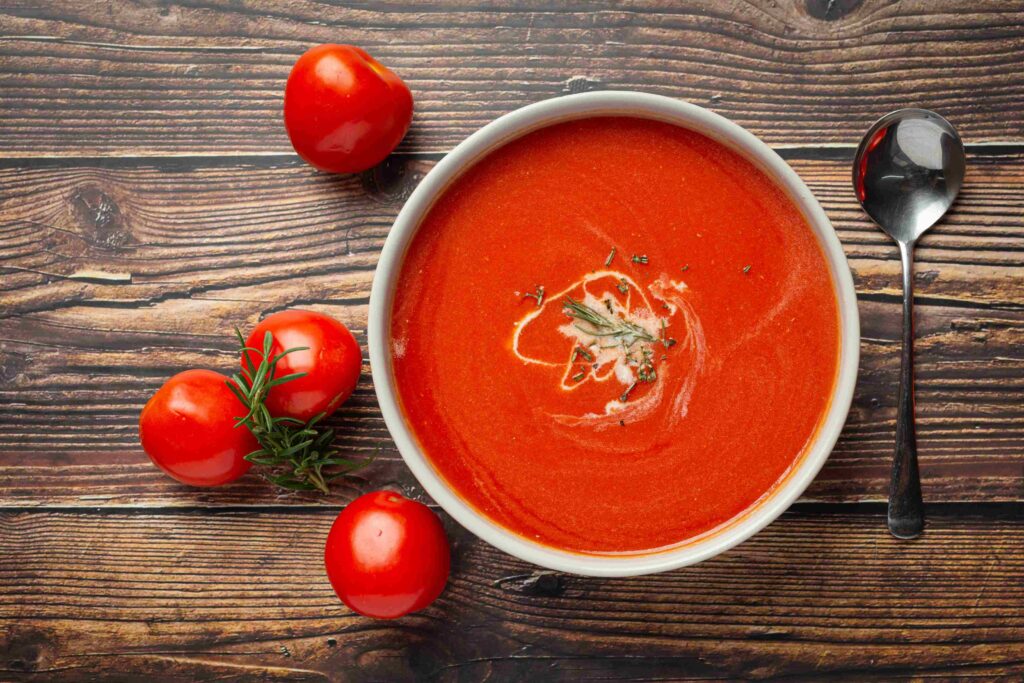
Can Dogs Eat Plain Tomatoes?
Sort of. In moderation, ripe, unseasoned tomatoes will not hurt your dog. But you never want to offer them in large quantities or too often. And green tomatoes are a big no-no, as they can be downright harmful.
Tomatoes are actually part of the nightshade family, and plants in this family contain tomatine, which is especially prevalent in green tomatoes, and solanine, both of which can be harmful in large quantities.
If you want my advice, I would stay away from tomatoes altogether, but it’s better to be safe than sorry. And watch those tomatoes in your garden, too, as dogs will happily nipple at a leaf or stem. It’s best to keep them fenced off.
Why Are Tomatoes Bad for My Dog?
As mentioned earlier, green tomatoes contain tomatine, which can cause harm to your dog if consumed in large amounts. It can be even more dangerous in smaller dogs, depending on the amount consumed. Symptoms of tomatine poisoning include;
- Gastrointestinal upset
- Excessive Salivation
- Vomiting
- Loss of appetite
- Diarrhea
- Abnormal heart rate
- Confusion
- Dilated Pupils
- Drowsiness
- Central Nervous System depression
- Weakness
- Behavioral changes
What Do I Do if I Think My Dog May Have Eaten Too Much Tomato?
If your dog drank tomato soup or ate a large number of tomatoes, the best thing you can do is bring her to the veterinarian. The veterinarian and staff will likely take the following measures for your dog.
Physical Exam
By doing a physical exam on your dog, the doctor quickly assesses his demeanor and checks for any unstable vitals. You may notice that the doctor pays extra attention to your dog’s mouth, especially if she is drooling or exhibiting oral pain.
Assessing Vomit and Diarrhea
If your dog isn’t vomiting already, the vet may induce vomiting in your dog to examine the contents of what she ate.
She may also take a fecal sample, especially if your dog is having diarrhea, in order to rule out any parasites or bacteria.
Blood Work
It’s very likely the veterinarian will order blood work to see how your dog’s organs are functioning. A complete blood count or CBC, along with a chemistry panel, will help greatly with the assessment.
In addition to blood work, it’s possible the vet will order a urinalysis to check further into the function of the kidneys.
ECG
It’s possible your dog may experience cardiac symptoms, which will likely prompt the doctor to perform an ECG for a proper reading of your dog’s pulse. An ECG will also tell the doctor if the dog’s heart is functioning the way it should.
Are There Healthy Veggies I Can Give My Dog?
Healthy veggies that won’t hurt your dog can be an excellent source of nutrients for her. Veggies are packed with antioxidants, fiber, and minerals. Veggies should always be blanched, steamed, or pureed for your dog without anything added.
Let’s take a look at some healthy veggies for your four-legged friend.
Spinach
Spinach is a true power food, as it’s backed with Vitamins B6, B9, E, C, K, and folic acid. It also contains magnesium, potassium, iron, and calcium.
Kale
Kale is another great power veggie. Key vitamins in kale include K and A, as well as iron. The vitamins in kale support vision, bone health, immune function, energy, and fetal development in puppies.
Green Beans
One of my favorite veggies, green beans, are full of iron, calcium, and fiber. They also contain vitamins A, C, B6, and K.
Carrots
Packed with beta-carotene, we know that carrots are especially beneficial for the eyes. They also contain vitamins K, A, B6, and potassium.
Broccoli
Broccoli is also chock full of vitamins, including vitamins C and K. It also has potassium which is excellent for your dog’s bone density, heart health, and protection against certain diseases.
A Myth About Dogs and Tomato Juice
A popular treatment for dogs that have had the unfortunate experience of getting skunked is to bathe them in tomato juice. While this certainly won’t hurt the dog, it’s not really the best method for removing the skunk smell.
Skunk oil is not easy to get out, and while tomato juice may mask the smell a little, it’s not going to remove the oil. The only way to do so is by neutralizing it with something like vinegar.
Meta Description
Check out this article if you are curious about whether or not your dog can eat tomato soup.
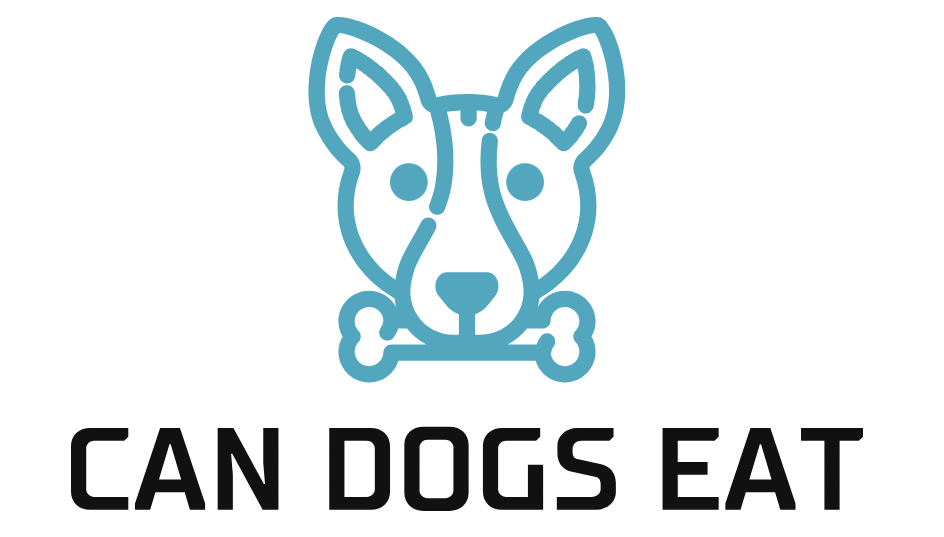
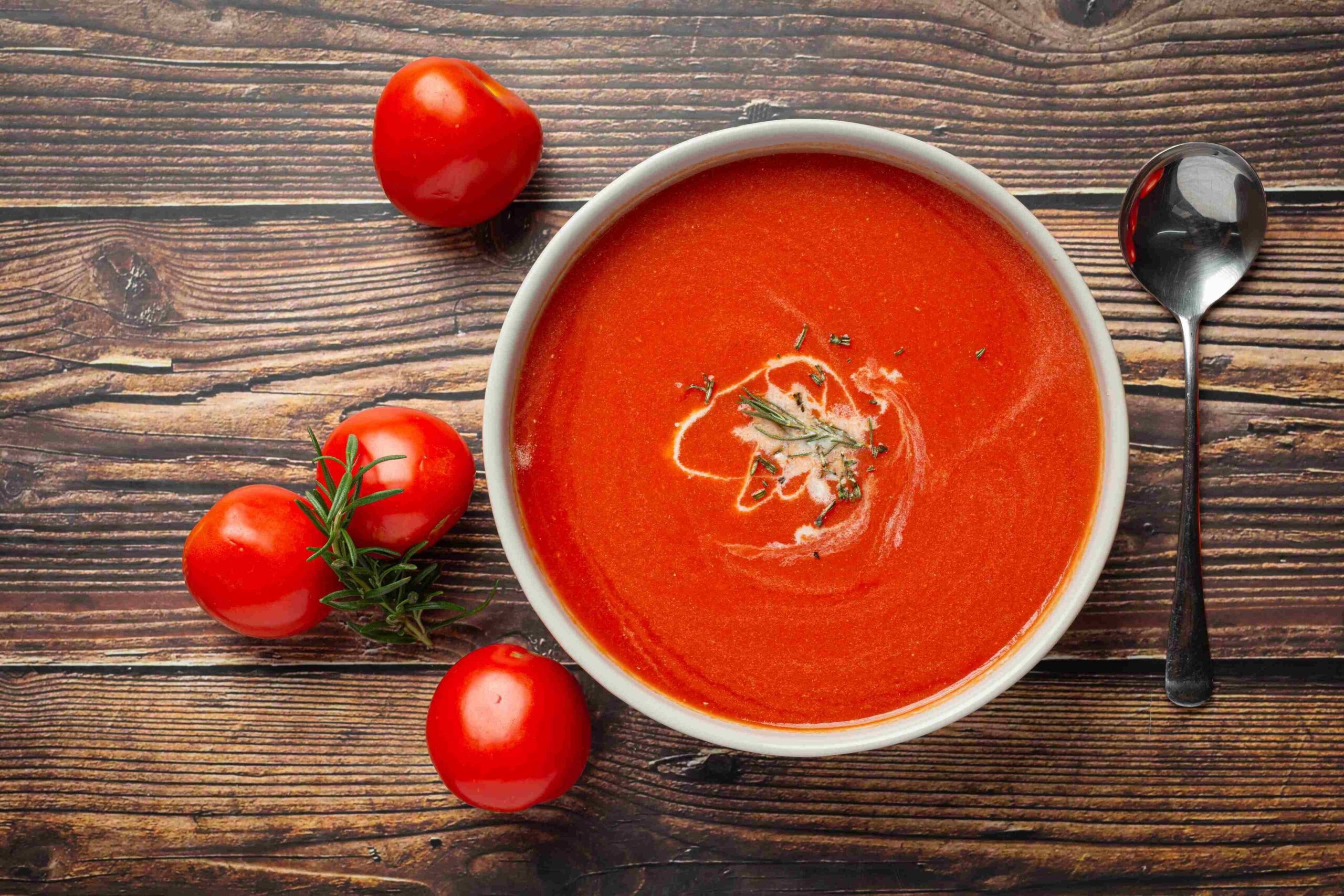
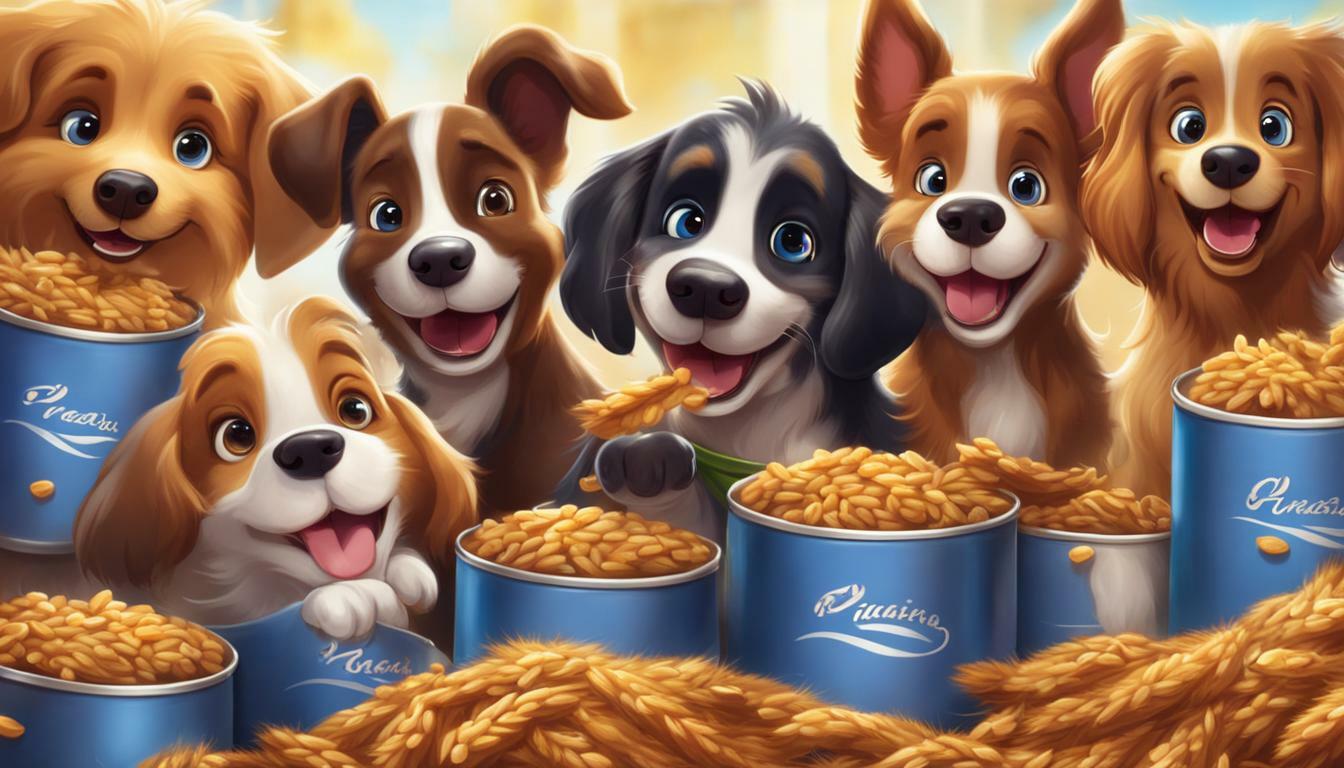
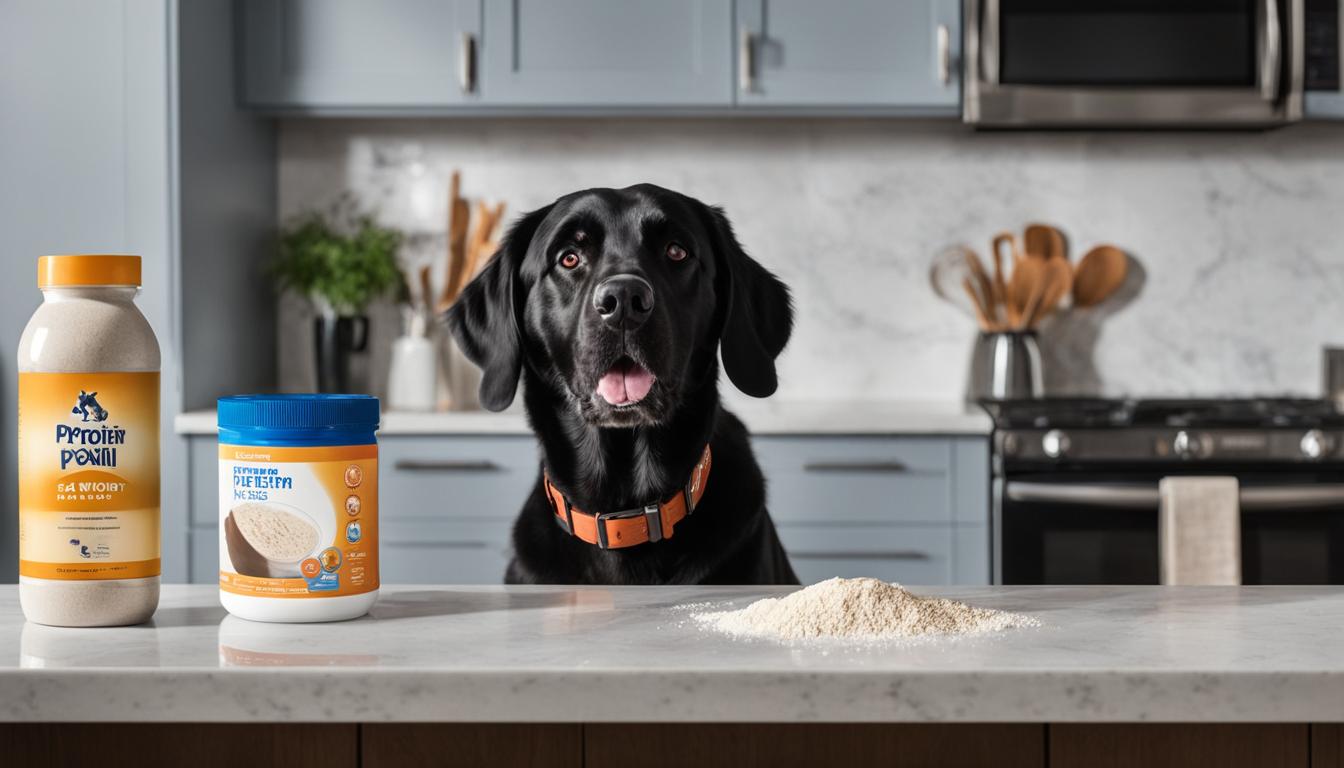
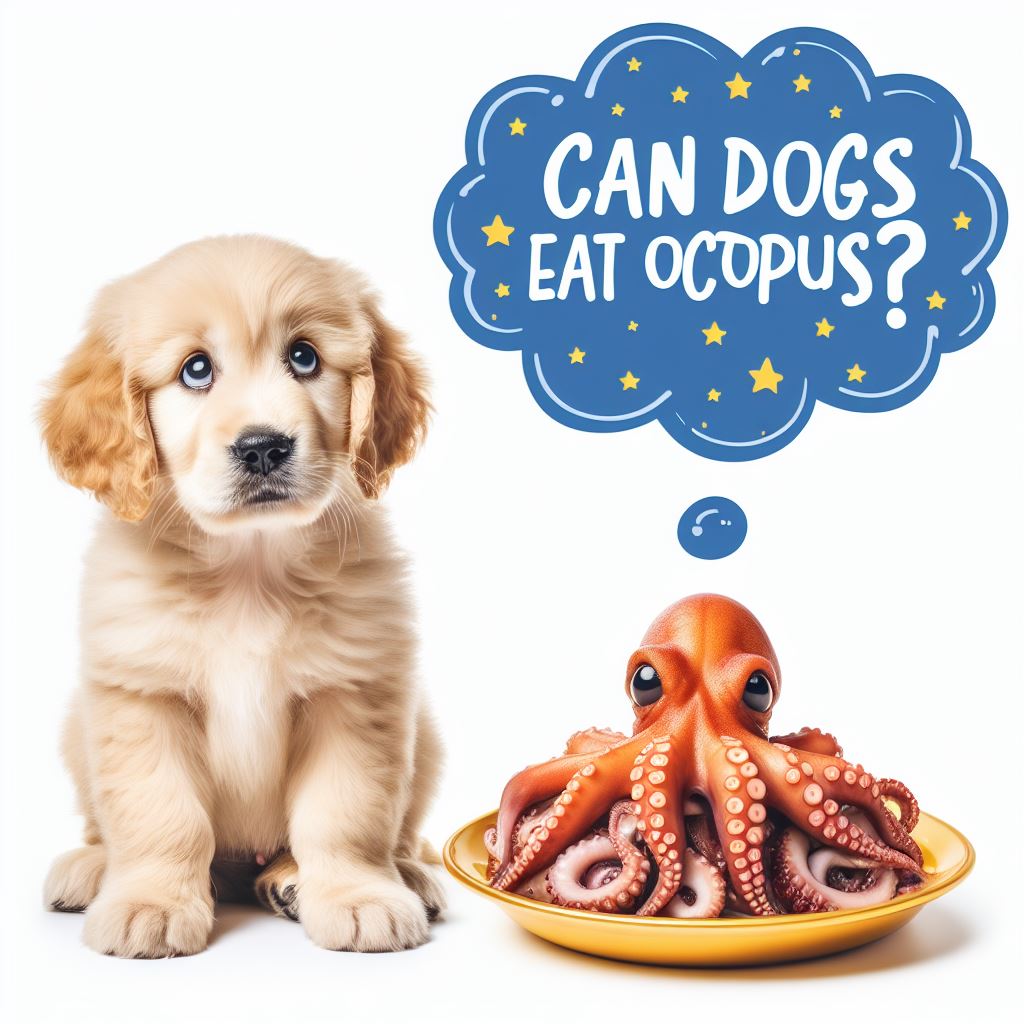
Leave a Reply